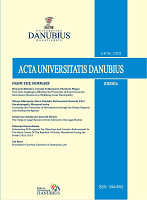Has the International Crimes Tribunal Bangladesh (ICT-BD) assisted to Reconcile Society?
Has the International Crimes Tribunal Bangladesh (ICT-BD) assisted to Reconcile Society?
Author(s): Rahman Md MustakimurSubject(s): Criminal Law, Criminology
Published by: Editura Universitară Danubius
Keywords: International Criminal Justice; International Criminal Trial; Fair Trial Rights; Justifications of Punishment;
Summary/Abstract: Following the Liberation War of 1971 between Bangladesh (formerly East Pakistan) and West Pakistan, Bangladesh, a newly formed country, enacted the International Crimes (Tribunals) Act in 1973 to prosecute and punish war criminals. However, it was not until 2009 that the Bangladeshi government revived the vision of trials, announcing its intention to establish a war crimes tribunal. By appointing judges, investigators, and prosecutors, the tribunal was finally established in 2010. Although the tribunal formed by the 1973 Act is claimed to operate independently, this article argues that several significant shortcomings hinder the overall judicial process of criminalizing and sentencing individuals. To do that, it examines several provisions of the 1973 Act and the tribunal’s operations in light of international standards. The paper concludes that while the Bangladeshi government’s efforts to bring the suspects to justice are praiseworthy, the domestic tribunal fell short of guaranteeing the accused’s right to a fair trial and justice for society. It further contends that instead of uniting society, the tribunal splintered it. The study continues by noting that combining a hybrid tribunal and a Truth Commission could have helped unite the community and ensured justice.
Journal: Acta Universitatis Danubius. Juridica
- Issue Year: 19/2023
- Issue No: 2
- Page Range: 115-149
- Page Count: 35
- Language: English

